Ayurvedic Treatment for Autism: A Complementary Approach to Support Your Child
Are you worried that your child’s autism symptoms have not improved despite your best efforts?
As a parent of a child with autism, you’ve likely explored various treatment options to support your child’s development. We understand that conventional therapies remain essential, but many families are discovering how Ayurvedic treatment for autism can complement existing interventions and provide additional support for their child’s overall well-being.
Ayurvedic treatment for autism offers a holistic approach that considers the child’s unique constitution, physical health, and developmental needs. It focuses on restoring balance and supporting the body’s natural healing processes, which many families have found beneficial alongside traditional autism therapies.
Let’s learn how Ayurveda works for autism and how the treatment outcomes can be boosted and maximized:
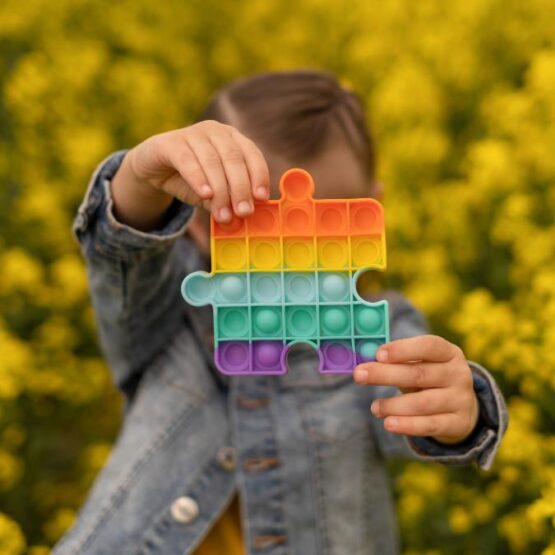
How does Ayurveda classify Autism?
Ayurveda is a centuries-old traditional Indian healthcare science that consists of herbs from medicinal plants and external therapies for treating disease or medical conditions.
In Ayurveda, the Ayurvedic doctor diagnoses a disease or any medical condition based on three elements or energies—Vata dosha (the air and space element is in excess). It handles the movement part of your body, and Pitta (the fire element is in excess). It handles the metabolic part of your body, and Kapha (the water element is in excess) handles the emotional part of your body.
Also, there are seven cellular elements, known as Saptadhatu, which the Ayurvedic doctor would analyze, and if there are any deficiencies, the doctor would plan to rectify them as well.
If there is an imbalance of these elements in your body, that results in some ailment or disease.
Coming back to autism, Ayurveda considers autism in the category of the term “Unmad.”
Moreover, Ayurveda classifies autism disorder based on the number of doshas.
When one dosha causes imbalance, it is considered a mild form of autism. When two doshas are there, it is considered moderate autism. But when all the doshas get imbalanced, then it is diagnosed as a severe form of autism.

Diagnostic Principles of Autism in Ayurveda
Autism can be detected in Ayurveda by understanding the behavior of your child. The doctor will determine if your case is mild, moderate, or severe based on the doshas present. The doctor may also examine the pulse of the patient, also called Nadi Parikshan in Ayurveda.
Additionally, the doctor may ask you to undergo certain diagnostic tests to identify any deficiency in Sapt Dhatu.
Finally, based on the behavioral patterns, natural inclinations of the kid toward certain activities, nadi parikshan, and the reports of diagnostic tests, the doctor will identify the misalignment in the elements.
Let’s move on to learn about different treatment options for autism in Ayurveda:

Ayurvedic Treatment For Autism
The treatment plan will be decided based on the diagnosis. The doctor may choose a combination of internal or external therapy for your child.
Natural Ayurvedic herbs are famous for their wide range of potency and effectiveness without any side effects.
Moreover, the treatment is customized for every patient. Ayurveda believes in correcting the root cause of the disease. The same symptom in two kids may have different root causes.
Hence, in Ayurveda, there could be two different medications for two patients having the same symptom.
Ayurvedic treatment for autism can be broadly classified into internal and external treatment.

Internal Treatment
Internal treatment in Ayurveda is in the form of herbal medications. In Ayurveda, the medications and herbs are further divided into categories based on the affected body parts. Since the major target area is the brain, the category “Medha Rasayana” is typically used.
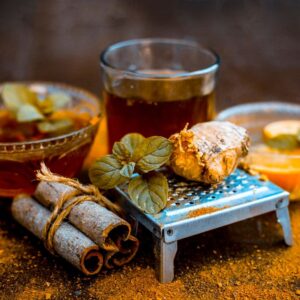
Medhya Rasayana (Memory Enhancing and Rejuvenation)
Medhya Rasayana is a category of herbs that are used to rejuvenate or correct brain-related disorders. Medha rasayana involves the use of many herbs, but for autism, below are the main herbs. However, the Ayurvedic doctor may add a few more herbs for your child based on the symptoms and the root cause of the symptoms.
Mandukaparni is known for improving behavior in autistic children and also for its neuroprotective action in the brain. It has anti-seizure activity and also promotes brain health.
Yashtimadhu has a memory-improving capacity and also promotes learning in autistic children and adults. It is an effective brain tonic and improves the activity of the central nervous system.
Guduchi improves neurotransmitter function and helps in the synthesis of acetylcholinesterase (an important neurochemical). Guduchi can improve the behavior of autistic children by developing cognitive functions.
Shankhapushpi is yet another herb that is important in controlling motor activity, sleep patterns, stress, and anxiety.
Brahmi is an important herb in Ayurvedic medicine, and it improves memory and the process of learning. It is also a powerful antioxidant and has anti-inflammatory properties. It is also known as an anti-epileptic drug, and it reduces stress and anxiety.
Jatamansi is derived from an endangered plant species. It helps cure insomnia and promotes the activities of the brain’s neuronal cells. It also has anti-cell damage properties and helps to maintain the longevity of the brain cells. Moreover, it improves mental alertness.
Kushmanda, or winter gourd, is known for the power of balancing vata and pitta elements and increasing the kapha element. It is also known for treating urinary problems and problems related to digestion and relieving the patient from excessive tiredness caused by autism.
Vasa is known to cure respiratory issues related to autism and is a wonderful expectorant. It works like a perfect medicine to cure asthmatic problems, bronchitis, and other kinds of shwasa roga.
Jyotishmati is a wonderful Ayurvedic drug that has been tested for its anti-pain perception properties. Autism is related to the feeling of continuous pain, and the pain receptors in the brain and the spinal cord are overactivated. Jyotishmati, by various mechanisms, works on the receptors of the brain and central nervous system and gives complete relief from the pain symptoms.
Swarna Bhasma with Ghrita is an ancient form of colloidal gold particle therapy that acts as a memory booster, intelligence builder, and immunomodulator. It helps in improving the damaged immunity in an autistic child and also enhances memory power.
The application of Chandan will improve any skin infection in autistic children. It will also help in calming down the nervous system and improving memory power.
Among all the herbs, Balamool is considered to be the best by ancient Ayurvedic practitioner Charaka for balancing the Vata element defect in the body. It is given in the form of a concoction and it immensely strengthens the entire body. It is one of the best medicines for the treatment of autism.
There are many more herbs that are used for internal treatment. If the kid is having GUT-related issues, the Ayurvedic doctor may add Virechana Dravyas (a category of herbs to rejuvenate or correct the abdominal body parts).
Finally, it is an expert Ayurvedic doctor who can only choose the right combination of herbs and their dosages based on age and severity of autism.
External Treatment
External treatment of Ayurveda involves basic Panchakarma treatment and some other advanced procedures. The Ayurvedic doctor may recommend the following Ayurvedic external therapies for your kid.
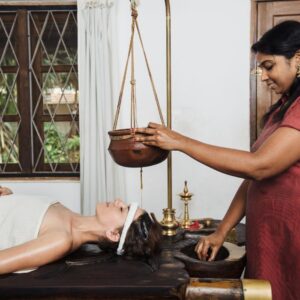
Shiropichu treatment can be effective and stress-relieving. It involves keeping sterile cotton dipped in medicinal oil on the head. Although Shiro Pichu can be applied to improve symptoms of several disorders, it can be used in autism, as it can improve blood circulation in the brain and the central nervous system. It can be effective in reducing stress, anxiety, and other symptoms related to motor activity.
Ayurvedic doctors can choose the duration of Shiro Pichu and the herbal medicines that can be used for this purpose.
Shirodhara, pronounced as shiro-dar-a, is a therapy designed to harmonize and steady the mind. It aids in coping with anxiety and episodes of anxiety attacks, concurrently enhancing attention and focus.
Takradhara involves an Ayurvedic sudation therapy utilizing medicated buttermilk poured over the forehead in a continuous stream to induce relaxation in the brain and mind, effectively reducing stress. Along with the above, the Ayurvedic doctor may also recommend a few basic panchkarma treatments for detoxification.
Before the Panchakarma treatment is applied to the child, the two therapies that are applied are Snehan and Svedana.
Snehan involves a very effective oil massage that pulls the toxins toward the gastrointestinal tract.
Svedana is a process through which toxins in the body of your child will be made to flow to the gastrointestinal tract through sweating. A herbal concoction is added to the steam to follow this process.
Panchakarma, as you may know, is the process of elimination of toxins from your child’s body. It will not only make your child stress-free but will also improve their immunity. A deep relaxation will prevail in your child’s mind, and he will start recovering from aggressive behavior.
The three different therapies of basic Panchakarma (consisting of five therapies) that are typically used for autism are as follows:
Virechan: Ayurvedic medicine is applied to induce bowel movement to eliminate toxins from the colon. This therapy balances the pitta dosha in your child’s body.
Basti: This process uses an enema to eliminate toxins from the body.
Nasya: Nasya is the technique of applying Ayurvedic nasal drops to eliminate toxins.
Empower your child’s autism journey with specialized guidance from experienced Ayurvedic doctors.
Importance of an Ayurvedic Doctor
In Ayurveda, the treatment plans are always customized to the needs of every patient. Hence, the selection of a doctor plays a very important role in the treatment and the results.
Moreover, the diagnostic processes are also done by the doctor, and they include a combination of subjective (Nadi Parikshan) and objective (test reports) analysis; the doctor’s selection becomes more critical in Ayurveda.
A good doctor who can identify the root cause correctly can give you much better and quicker results than a doctor who is new in the field of autism or Ayurveda.
However, you don’t need to worry. MedicoExperts takes care of this aspect for you.

How Ayurvedic Treatment for Autism Complements Conventional Care?
In mild and moderate cases of autism (in Ayurvedic terminology, when it’s driven by one or two doshas), you can expect better outcomes. However, since Ayurveda works on root causes, you should expect slow but steady results.
- In the case of mild autism, where a single dosha is involved, the success of the treatment is around 50 to 60 percent.
- In moderate cases, which involve two doshas, you can expect 40-50 percent success.
- In severe cases, where three doshas are present, Ayurvedic experts prefer to opt for a combination of allopathy and Ayurveda.
Although the progress can be slow, in around one year you can expect your child to be more independent in terms of function, including improved motor and sensory perception.
In short, they will not only be able to communicate but also be less irritated by stimuli like sound, light, texture, and balance. He will be less aggressive and hyperactive.
In severe cases of autism (in Ayurvedic terminology, when it’s driven by all three doshas), Ayurveda alone may offer expected outcomes. In such severe cases, you may need to opt for a combination of treatment streams like stem cell therapy followed by Ayurveda. That’s why we have come with our combination therapy.
How does it help?
If you want to further accelerate the recovery process, you can plan to use Ayurveda in combination with other therapies such as stem cell therapy or homeopathy.
When Ayurvedic treatment is combined with stem cell therapy for autism, it can be more effective, as some quick results generated by stem cells will act as a base for Ayurveda. Ayurveda will not only help in sustaining the results generated by stem cell therapy but also take the results to new heights slowly and steadily.
When combined with homeopathic internal medication and external application of Ayurveda, you can expect a 10% increase in the improvement of autism symptoms in moderate cases.
Cost of Ayurveda Treatment for Autism in India
Ayurveda treatment costs vary from individual to individual. You can expect 5,000 INR – 20,000 INR (60 USD – 240 USD) for internal medicines, depending on the condition of the child and the medication prescribed.
But if your child needs therapies, then the cost will be around 15,000 INR–80,000 INR (180 USD–960 USD), depending on the doctor.

Conclusion
Imagine your child leading an independent and complete life overcoming all the challenges autism throws in their way.
Ayurveda can turn this dream into reality if you know the right direction to follow.
When coupled with other modern therapies like stem cell therapy, it can help your child to get rid of 60% of the symptoms. This is the power of the Ayurvedic herbs and our traditional medicine system.
A successful treatment will be possible with the right doctors and a fool-proof treatment plan. MedicoExperts can help you in your journey to give your child a better life. To get any help regarding your child’s autism treatment, feel free to contact us.

Frequently Asked Questions (FAQs):
Q1. Can an autistic person live a normal life?
A. An autistic person can live a normal life by adopting the scientific treatment of Ayurveda and innovative therapies like stem cell therapy. There will be a 50-70% improvement in symptoms of autism.
Q2. How can autism be improved?
A. Autism can be improved by taking a multidisciplinary approach of allopathy, stem cell therapy, and behavioral therapy. Using Ayurvedic treatment can improve the symptoms.
Q3. When do symptoms of autism start?
A. Symptoms of autism start at the age of 18 months or older. The main observable symptom is a lack of eye contact.
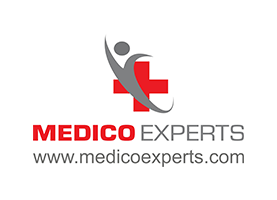
MedicoExperts is a Global virtual hospital which is established to offer quality healthcare services at affordable pricing without compromising the success rates of the treatment.
MedicoExperts is having a network of highly experienced super specialist doctors and well equipped hospitals across the globe and offering second opinion through online video consultation and surgical interventions through its empanelled super specialist doctors at its network hospitals in 17 countries from 3 continents.
By the virtue of its approach and model, MedicoExperts is successfully achieve to deliver
- Latest and most advanced treatments with success rates of international benchmarks.
- Multiple cost options depending upon the hospital facilities, with the same doctor.
- Treatment option in multiple cities/state/countries.
- Trust and peace of mind.
Most suitable for patients who are looking for:-
- Planned Surgeries and treatment from most experienced doctors and at multiple cost options as per hospital facilities with best possible outcomes.
- Second Opinion from expert doctors.
- Complex cases involving multi specialities
- International patients looking for treatment from Indian doctors
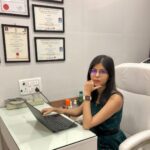
Author Bio:
Dr. Nikita Patil – BAMS , MS (MASTER IN SHALYATANTRA)
Dr. Nikita Patil is a distinguished Ayurvedic doctor, and healer dedicated to promoting holistic well-being through the ancient wisdom of Ayurveda. With a profound understanding of traditional Ayurvedic principles and a passion for natural healing, Dr. Patil has become a respected figure in the field of alternative medicine. Dr. Patil is also a prolific author, contributing to the dissemination of Ayurvedic knowledge through her insightful writings.
References
Medhya Rasayana: https://www.ncbi.nlm.nih.gov/pmc/articles/PMC3459457/
Mandukaparni: https://pubmed.ncbi.nlm.nih.gov/17569283/
Yastimadhu: https://pubmed.ncbi.nlm.nih.gov/15120462/
Guduchi: https://journals.lww.com/iphr/abstract/2002/34050/effect_of_tinospora_cordifolia_on_learning_and.11.aspx
Sankhapushpi: https://www.ncbi.nlm.nih.gov/pmc/articles/PMC3459457/
Brahmi: https://www.ncbi.nlm.nih.gov/pmc/articles/PMC8943402/
Jatamansi: https://www.ncbi.nlm.nih.gov/pmc/articles/PMC3510905/
https://www.ncbi.nlm.nih.gov/pmc/articles/PMC3635207/
Kushmanda: https://www.ncbi.nlm.nih.gov/pmc/articles/PMC3296346/
Vasa: https://www.ncbi.nlm.nih.gov/pmc/articles/PMC3202261/
https://www.ncbi.nlm.nih.gov/pmc/articles/PMC4895753/
Jyotishmati: https://www.ncbi.nlm.nih.gov/pmc/articles/PMC4484053/
Suvarna bhasma with Grhita: https://www.ncbi.nlm.nih.gov/pmc/articles/PMC8078605/
Chandan: https://pubmed.ncbi.nlm.nih.gov/30549622/
Musta: https://www.ncbi.nlm.nih.gov/pmc/articles/PMC4484047/
Bilva: https://www.ncbi.nlm.nih.gov/pmc/articles/PMC6034160/
Dashmoola: https://www.ncbi.nlm.nih.gov/pmc/articles/PMC4395922/
Triphala: https://www.ncbi.nlm.nih.gov/pmc/articles/PMC5567597/
Shiropichu: https://www.ncbi.nlm.nih.gov/pmc/articles/PMC8186000/
Shirodhara: https://www.ncbi.nlm.nih.gov/pmc/articles/PMC8039348/
https://www.ncbi.nlm.nih.gov/pmc/articles/PMC3667433/
Takradhara:
https://www.researchgate.net/publication/325060843_A_Review_on_Takradhara_Special_Panchakarma_Therapy
Panchakarma therapy:
https://www.ncbi.nlm.nih.gov/pmc/articles/PMC3215365/
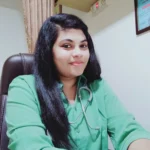
Author’s Bio
Dr. Ashita Nandgaonkar – BHMS, MS in psychological counseling
Dr. Ashita Nandgaonkar is a highly esteemed homeopathic doctor with a passion for holistic healing and patient-centered care. Dr. Nandgaonkar remains dedicated to raising awareness about the benefits of homeopathy and promoting its integration into mainstream healthcare. Her mission is to empower individuals on their journey to health and wellness, embracing the holistic approach that homeopathy offers. She has a special interest in researching Homeopathic solutions for diseases that are difficult to treat with conventional medicines and therapies.




